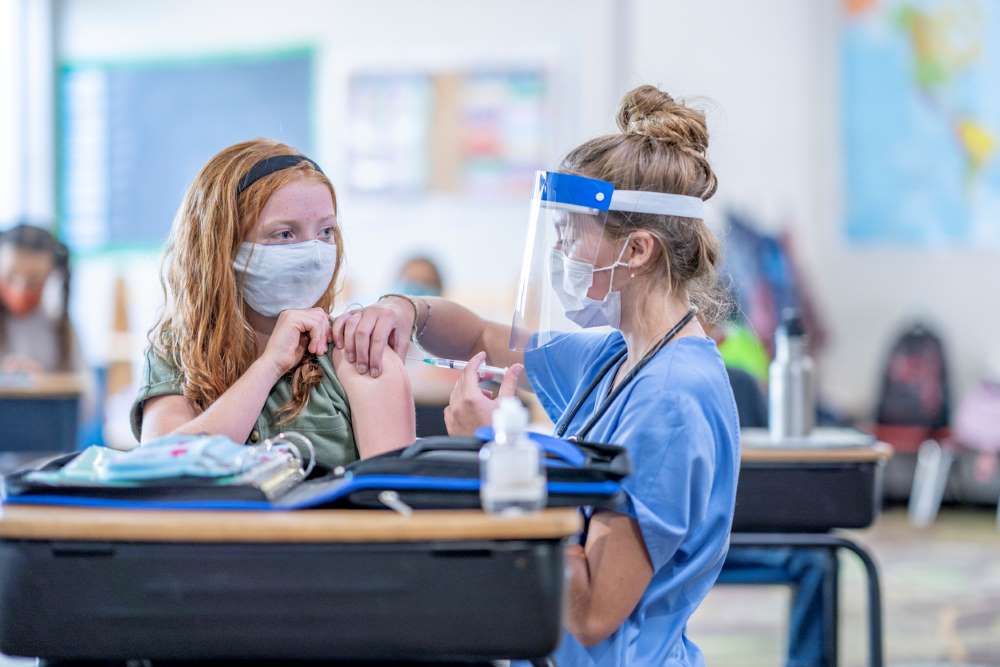
The best way to stop the spread of vaccine-related diseases is through immunization. However, despite various scientific studies to show that vaccines do not cause autism, cancer, and other chronic diseases, some parents still refuse to vaccinate their children. Read on for the most common unfounded information about kid’s vaccination.
-
Vaccines cause autism
Thanks to a study by a British surgeon, Andrew Wakefield, that linked the measles, mumps, rubella (MMR) vaccine to increased chances of contracting autism among children, there is widespread fear of having children immunized. However, this claim has since been discredited after extensive research and study.
There is no evidence that links MMR or any other vaccine to autism disorder. In fact, a child develops autism even before they are born.
-
Giving children multiple vaccines overloads their immune system
Do not let the fear that various vaccines could overload your child’s immune system stop you from taking them to get immunized. Scientific evidence shows that giving children more than one vaccine has no adverse effects on the immune system.
Often, a child is exposed to various substances that result in immune responses each day. For instance, a sore throat or common cold exposes your child to more antigens than multiple vaccines. The mouth and nose contain bacteria, and food also introduces antigens into your child’s body, which can overload the immune system.
-
Vaccines contain harmful toxins
Vaccines contain ingredients such as aluminum, formaldehyde, and mercury. However, only a minimal amount of these ingredients is in vaccines, so they cannot harm or poison your kids. Aluminum, formaldehyde, and mercury are found naturally in the body, food, or the environment and only become toxic when ingested in large amounts.
To guarantee that all vaccines are safe and effective for children, the vaccinations are subjected to rigorous scientific trials and certification by WHO and the national regulatory agencies.
If your child suffers severe complications after immunization, you can file for compensation through the National Vaccine Injury Compensation Program (NVICP). Some of the vaccines covered by the NVICP include hepatitis A and B, varicella, tetanus toxoid, and MMR, to mention a few.
-
Proper hygiene and sanitation can stop the spread of diseases
One of the best ways to protect your child from contracting diseases is through maintaining adequate hygiene and sanitation, proper diets, and the use of antibiotics. However, failing to get vaccinated can expose your child to conditions such as polio and measles, despite proper sanitation and hygiene.
-
Natural immunity is more effective than vaccine-acquired immunity
There are various ways your body develops a defense against illnesses, including innate or vaccine-acquired immunity.
Natural immunity is developed when you are exposed to a disease organism through infection with the actual condition. And while you may develop a stronger immunity than the vaccine acquired, the natural approach can be dangerous. For instance, you face a one in 500 chance of death through the natural process against measles.
Other dangers you expose your child to through natural immunity include mental retardation due to Haemophilus influenzae type b (Hib), congenital rubella infection resulting in congenital disabilities, and liver cancer from hepatitis B virus.
-
Vaccines can infect your kid with the disease it prevents
Often, when a child receives a vaccination against a disease, they develop symptoms that resemble the condition the immunization is trying to avoid. One of the most common misconceptions, when this happens, is that one has contracted the disease.
However, such symptoms occur after immunization because the body initiates an immune response towards the vaccine. It does not mean that your child is infected.
-
Vaccine-preventable diseases are an unfortunate fact of life
Vaccine-preventable illnesses such as measles, polio, mumps, and rubella can result in severe complications in both children and adults. These complications include;
-
Diarrhea
-
Inflammation of the brain
-
Ear infections
-
Congenital rubella syndrome, especially when a woman is infected with rubella in the early stages of pregnancy
-
Blindness
-
Pneumonia
-
Death
Ensure that you protect your child from suffering and complications by vaccination. Failing to vaccinate your kids makes them unnecessarily vulnerable even when they become adults.
-
You do not need to vaccinate your child when infection rates are low
When a majority of the people in your community are vaccinated, even the few unimmunized people are protected from diseases. However, a rapid increase of unimmunized people opens up opportunities for bacteria and viruses to spread. To be on the safe side, ensure that you vaccinate your child even when infection rates are low in your country.
-
You can tweak your kid’s vaccine schedule
Your child’s immune system is still weak at a tender age, so deviating from the vaccine schedule recommended by CDC makes the child vulnerable to life-threatening diseases.
Endnote
Failing to vaccinate your child can expose them to unnecessary suffering and illnesses. Familiarize yourself with these myths and misconceptions about vaccines and have your child immunized.



























